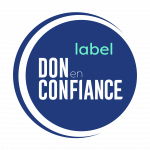From July 29 to August 2, 2022, Coalition PLUS will be in Montreal (Quebec, Canada) to participate in the 24th edition of the International AIDS Conference (AIDS 2022). We will take this opportunity to follow in the footsteps of HIV activists who demonstrated in the same city in 1989 to demand the recognition of their central role in the response to the epidemic. 33 years later, our member in Quebec, COCQ Sida, has launched a major consultation to update the Montreal Manifesto, the founding text born of the reflections of our communities.

AIDS 2022 Montreal: Coalition PLUS mobilizes for the rights and health of people who use drugs

For this 24th edition, the Coalition PLUS network is mobilizing for the development of community-based harm reduction services around the world. In line with our call, launched at the AIDS 2018 Conference in Amsterdam, to say « no » to the war on drugs, we are highlighting peer educators in our network through the slogan « Proud Harm Reduction Dealers: Support Community Health ».
Often drug users themselves, these people work with their communities to give them the tools they need to take control of their prevention. In hostile contexts, where drug use can lead to prison, they offer appropriate support, without judgment and in complete confidentiality. We therefore wanted to pay tribute to them. To learn more about the campaign, subscribe to our Instagram account!






